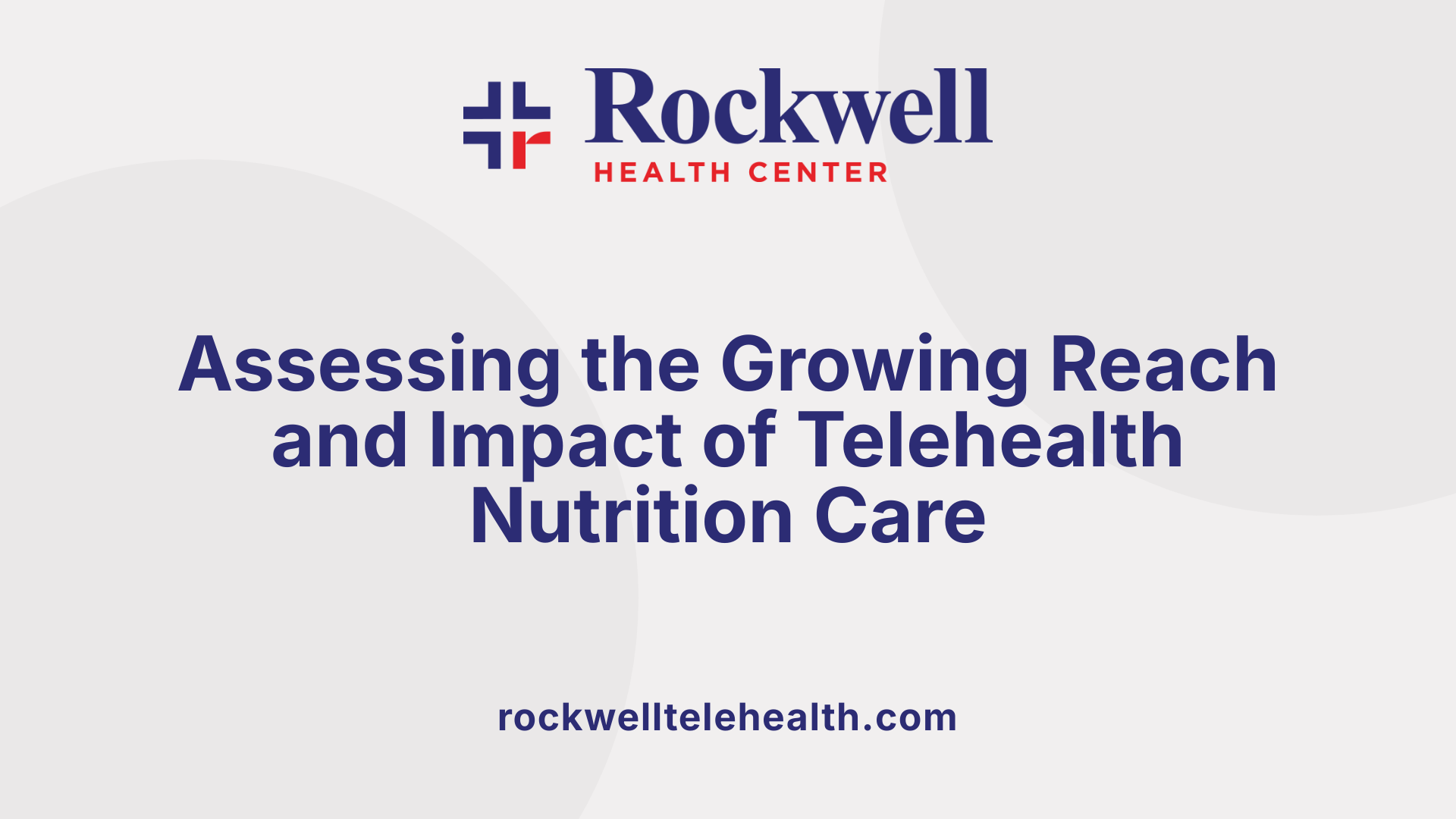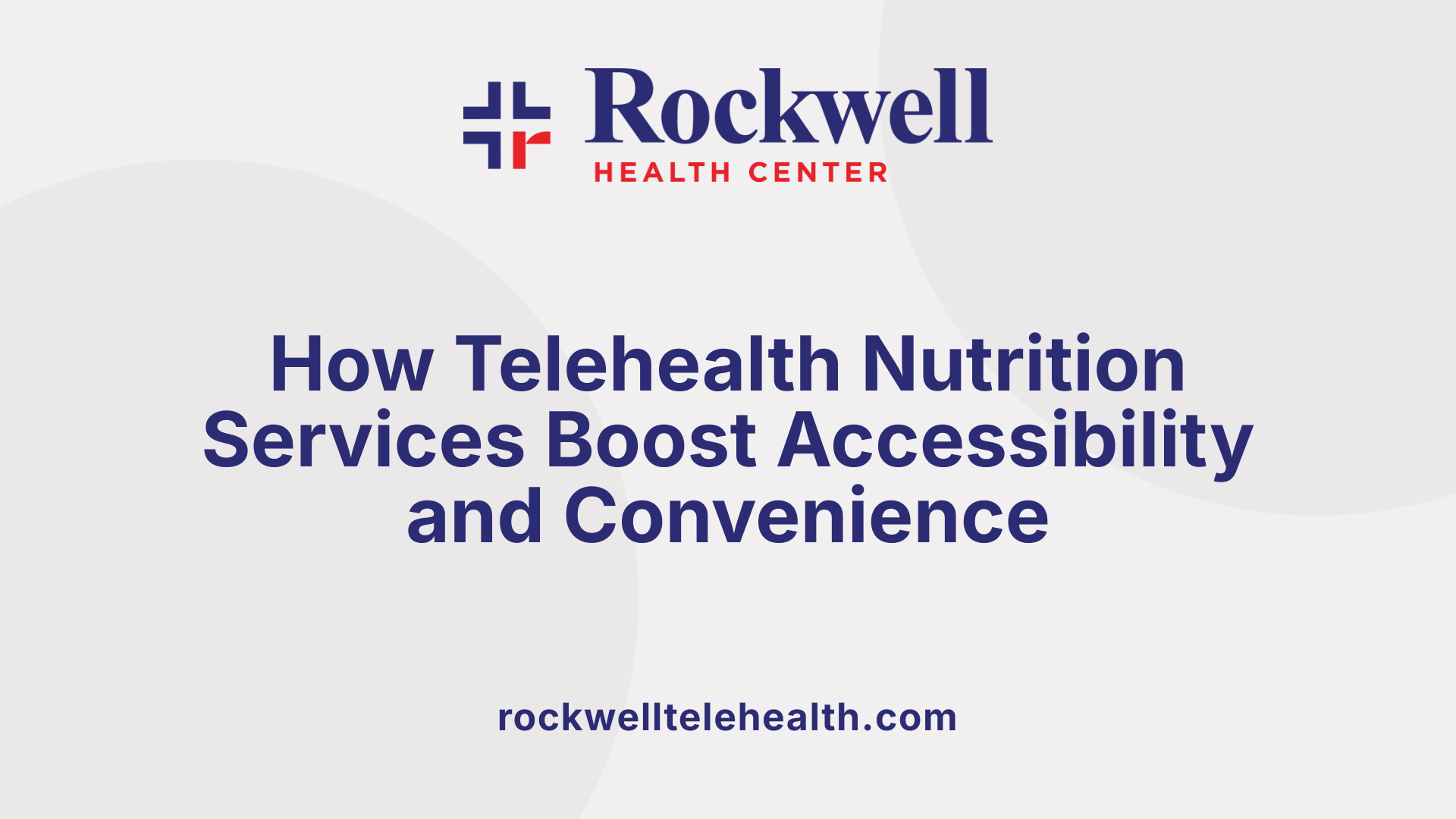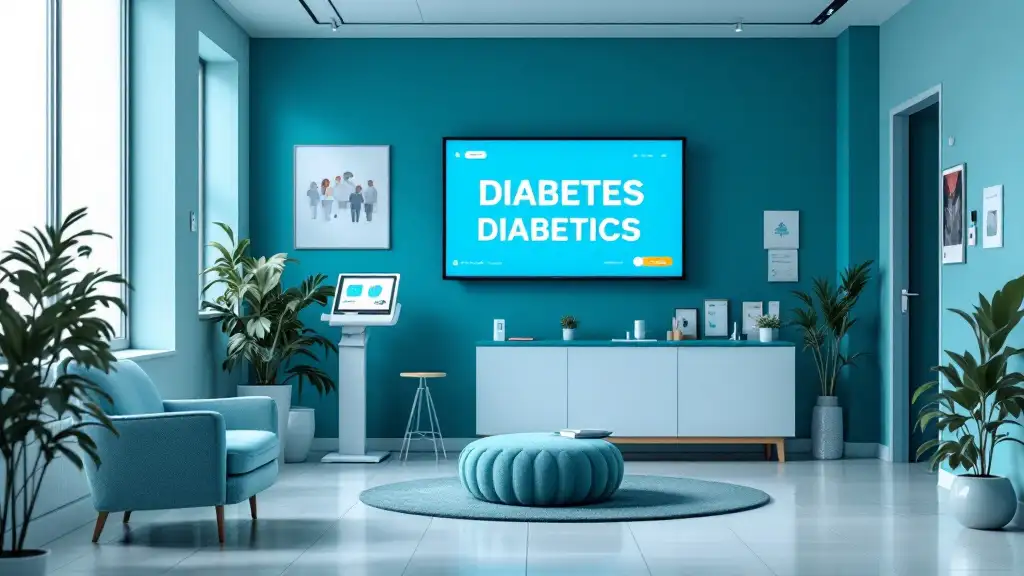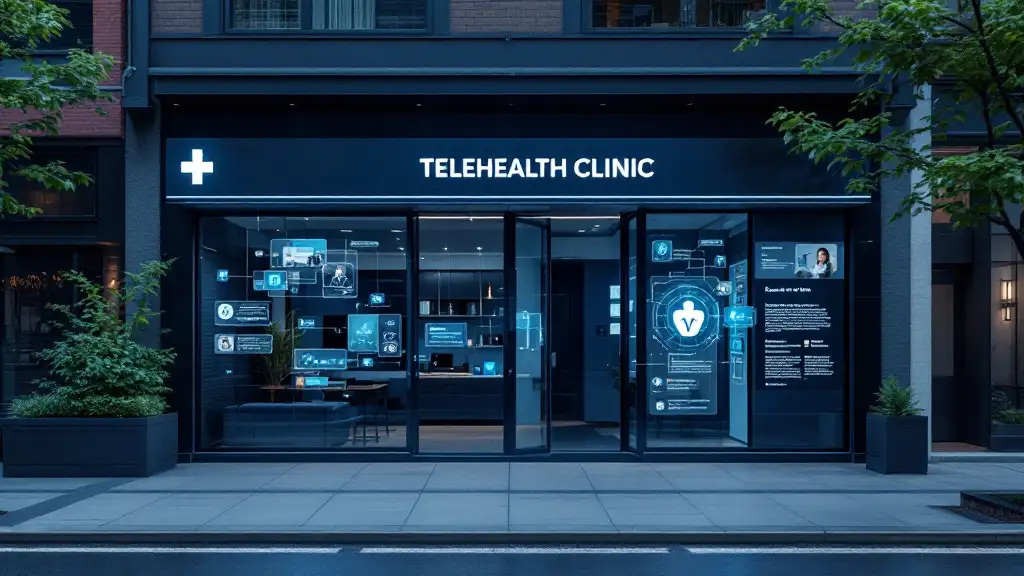Revolutionizing Nutrition Guidance Through Telehealth
The advent of telehealth has transformed the landscape of nutritional care by providing accessible, personalized, and high-quality guidance from qualified experts. This article explores how telehealth platforms operate, their strategies, benefits, and the range of services available to help individuals achieve diverse health and lifestyle goals.
How Telehealth Connects You to Qualified Nutrition Experts
How does telehealth provide nutrition guidance from qualified experts?
Telehealth offers access to nutrition experts such as registered dietitians (RDs) and licensed nutritionists through secure, HIPAA-compliant digital platforms. These platforms facilitate real-time video calls, messaging, and remote assessments, allowing patients to receive personalized nutrition advice from their trusted healthcare providers.
Qualified professionals use digital tools to perform comprehensive dietetic assessments. They evaluate biometric measurements, food logs, health histories, and lifestyle information to develop tailored nutrition plans. This personalized approach ensures that care aligns with individual needs, health conditions, and dietary preferences.
Telehealth also incorporates advanced digital resources like mobile apps, virtual grocery shopping, and online educational modules. These tools help patients better understand their nutrition goals, engage more actively, and sustain healthy habits.
Ongoing monitoring and follow-up appointments are a vital part of telehealth nutrition services. Patients receive continuous support to manage chronic diseases, achieve weight loss targets, and implement behavioral changes. This consistent engagement is easy to maintain from home, removing geographic barriers and making expert guidance more accessible.
Overall, telehealth connects you with qualified nutrition professionals efficiently, delivering evidence-based, personalized care enabled by cutting-edge technology and digital health resources.
Strategies and Benefits of Using Telehealth for Nutrition and Health Goals
What are the strategies and benefits of utilizing telehealth for nutritional and health goals?
Utilizing telehealth for nutritional and health objectives involves multiple tactics designed to engage patients effectively. These include conducting virtual consultations via video calls, exchanging messages asynchronously, and implementing remote monitoring through wearable devices or mobile apps. Digital tools such as food logs, biometric tracking, and AI-powered platforms enable real-time data collection, allowing for tailored interventions.
These strategies support personalized care plans, preventive nutrition counseling, and medical nutrition therapy. They foster ongoing communication, improved adherence to dietary goals, and timely adjustments to plans based on patient progress.
The advantages of telehealth extend beyond personalized interactions. It significantly increases access to qualified nutrition professionals, especially for individuals in rural or underserved regions. Patients benefit from enhanced convenience, saving travel time and scheduling flexibility.
Privacy and comfort are also improved, as patients can participate from familiar environments. Interactive features like gamification—making health activities into engaging challenges—virtual cooking classes, and social media communities further boost motivation and engagement.
Telehealth's ability to enable continuous monitoring, data-driven insights, and coordinated care contributes to better health outcomes. It supports weight management, chronic disease control, dietary improvements, and behavioral change.
Overall, telehealth broadens the scope of nutritional care, providing flexible, accessible, and personalized support that aligns with contemporary health needs. These strategies help individuals achieve their health goals more effectively while enhancing the overall quality and reach of nutritional services.
Range of Telehealth Nutrition Services, Including Personalized Coaching and Education
 What types of telehealth nutrition services are available, including personalized counseling and virtual coaching?
What types of telehealth nutrition services are available, including personalized counseling and virtual coaching?
Telehealth has broadened access to a diverse array of nutrition services that are personalized and delivered remotely. Credentialed nutrition professionals such as registered dietitians and nutritionists provide both individual and group-based care through various formats.
Real-time, interactive sessions like video counseling, virtual coaching, and live group classes are common. These synchronous interactions enable clients to discuss their health concerns directly with professionals, receive tailored dietary advice, and ask questions in real-time.
In addition to live sessions, telehealth incorporates asynchronous methods. Clients can review lab results, send message-based follow-ups, and access digital resources at their convenience, making ongoing support flexible.
Digital health tools play a crucial role in tracking and managing nutritional health. Mobile apps allow users to log food intake, monitor physical activity, and track weight or blood glucose levels. Wearable devices provide additional data on activity patterns and health metrics, which practitioners can review to personalize plans further.
Educational resources like cooking classes and label interpretation tutorials are increasingly available online. Programs such as the VA's Healthy Teaching Kitchen provide virtual cooking sessions, emphasizing nutritious ingredient use and meal planning. Patients can learn to read food labels, make healthier choices, and develop sustainable habits.
Support for behavioral change and self-monitoring is woven into these services. Tools such as goal-setting modules, progress tracking, and motivational messaging help individuals stay engaged and committed to their health goals.
Overall, telehealth delivers a comprehensive approach to nutrition management, combining interactive counseling, digital tracking, and educational experiences to empower individuals to improve their health from home. These services not only support weight management, chronic disease control, and wellness but also increase accessibility for populations in remote or underserved areas.
Supporting Diverse Health and Lifestyle Objectives via Telehealth

How does telehealth support diverse health and lifestyle objectives through nutrition programs?
Telehealth has revolutionized nutrition care by providing personalized support tailored to a wide range of health goals. Using tools like real-time video calls, messaging, remote monitoring, and mobile apps, nutrition professionals can create customized plans suited to each individual's needs.
This approach is especially helpful for managing weight, preventing or controlling chronic diseases such as diabetes and heart disease, and supporting pediatric health. For instance, pediatric patients benefit from engaging, interactive programs that promote healthy eating habits and activity levels.
Telehealth also enhances access to qualified dietitians and nutritionists who can guide clients through meal planning, portion control, and label reading. Virtual coaching sessions and group counseling foster behavioral change, motivation, and accountability.
Specific populations, including pregnant women, older adults, athletes, and children, receive tailored interventions addressing their unique nutritional requirements. The convenience of virtual access encourages ongoing engagement and facilitates preventive care.
Overall, this flexible, patient-centered model improves health outcomes by making nutrition support more accessible, personalized, and effective for a broad spectrum of health and lifestyle objectives.
Telehealth's Role in Managing Specific Conditions like Weight and Pediatric Health

What is the role of telehealth in managing specific conditions like weight management and pediatric health?
Telehealth has become an important tool in managing various health conditions, including weight management and pediatric health. It provides convenient access to healthcare professionals through video calls, phone sessions, and digital messaging, making ongoing support and education more accessible.
For weight management, telehealth enables providers to deliver personalized counseling, monitor progress, and adjust plans in real-time, often utilizing tools like food logs, biometric data, and behavioral tracking apps. This supportive environment helps motivate patients to achieve healthier weights and improve overall well-being.
In pediatric health, telehealth allows for remote consultations that involve.parents and caregivers, fostering family-centered approaches. Parental involvement is crucial for children’s health habits, and digital platforms facilitate consistent guidance on nutrition, activity, and behavioral changes. Moreover, culturally tailored materials in multiple languages ensure that diverse populations receive relevant, understandable support.
While telehealth offers many benefits, certain limitations exist. Physical examinations and anthropometric measurements, such as height and weight, sometimes require in-person visits. Therefore, combining virtual and face-to-face appointments can optimize care. Nonetheless, the flexibility and safety of telehealth make it particularly valuable in reaching underserved or rural communities where traditional healthcare access might be limited.
Research indicates that telehealth interventions can effectively reduce BMI and enhance quality of life in both children and adults. The use of virtual platforms supports sustained engagement and lifestyle modifications, which are central to long-term health improvements.
Overall, telehealth complements traditional healthcare by offering accessible, personalized, and culturally sensitive support, essential for effective management of weight and pediatric health conditions.
Evaluating Accessibility, Effectiveness, and Coverage of Telehealth Nutrition Services
 Telehealth nutrition services are becoming more accessible across diverse populations due to the expansion of various delivery formats such as phone consultations, online platforms, mobile health apps, and hybrid models that combine multiple approaches.
Telehealth nutrition services are becoming more accessible across diverse populations due to the expansion of various delivery formats such as phone consultations, online platforms, mobile health apps, and hybrid models that combine multiple approaches.
These modalities support personalized care and have shown to improve health outcomes including weight management, BMI reduction, and better adherence to dietary recommendations. Patients generally report high satisfaction with telehealth, citing convenience, privacy, and flexibility as major benefits. Many are willing to recommend virtual counseling to others, indicating strong acceptance.
Studies indicate that telehealth interventions, particularly those utilizing mobile health tools, are often cost-effective. Some evidence suggests they can be cost-saving or deliver significant value from both health system and societal viewpoints. This economic efficiency makes telehealth an attractive option for expanding access to nutrition care.
Insurance coverage, including Medicaid and Medicare, plays a critical role in increasing accessibility. Many insurance plans now cover a range of telehealth services, reducing out-of-pocket costs for patients. This is especially important for rural and underserved populations, who traditionally face barriers to in-person care.
Delivery formats such as virtual visits via video or phone, supported by patient portals, play a crucial role in reaching individuals with limited mobility, transportation issues, or those living in remote areas. These methods help to democratize access, ensuring more people can receive ongoing dietary support and preventive care.
Although research supports the effectiveness and growing accessibility of telehealth nutrition services, ongoing data collection is necessary to better understand their long-term cost-effectiveness and impact on health outcomes. As policies continue to evolve, the integration of telehealth into standard nutritional care offers promising prospects for broadening reach and enhancing care quality.
Operation of Telehealth Nutrition Services and Their Advantages over In-Person Care

How do telehealth nutrition services operate, and what advantages do they offer over traditional in-person care?
Telehealth nutrition services utilize digital platforms such as Zoom, Google Meet, or simply phone calls to connect registered dietitians and nutritionists with their clients remotely. During these virtual appointments, professionals can assess health history, review food logs, discuss dietary restrictions, and provide personalized dietary advice.
These services often include educational demonstrations like cooking classes, grocery shopping guidance, and behavioral support, all delivered online. The use of mobile apps, patient portals, and AI tools further enhances personalized care by tracking biometric data, food intake, and health outcomes in real time.
The benefits of telehealth extend beyond convenience. It significantly increases access, especially for individuals in rural or underserved areas where in-person resources are limited. Flexible scheduling options, including evenings and weekends, help people incorporate nutrition support into busy lives.
Moreover, telehealth reduces barriers such as travel time and costs, making ongoing nutritional counseling more feasible and sustainable. During health crises like the COVID-19 pandemic, it ensured continuity of care without exposing patients or providers to undue risk.
Despite its many advantages, effective telehealth delivery requires attention to privacy concerns, users' familiarity with technology, and strict adherence to regulations like HIPAA. Providers also need to ensure their services comply with licensing laws across different regions. Overall, telehealth enhances the reach and effectiveness of nutritional care, supporting ongoing management and education tailored to each individual's needs.
Embracing the Future of Nutritional Care
Telehealth has emerged as a pivotal tool in delivering expert nutritional guidance, breaking geographic barriers, and providing personalized, accessible care. As technology continues to advance and coverage expands, telehealth solutions are poised to become integral in achieving diverse health and wellness objectives, supporting sustained behavior change, and improving overall health outcomes for many individuals.
References
- Preparing patients to receive nutrition care using telehealth
- Setting up telehealth to provide nutrition care
- Virtual Dietitian & Nutrition Counseling: How It Works
- Telehealth: A Useful Tool for the Management of Nutrition ...
- Two telehealth resources help you eat healthier - VA News
- Reach your health goals with virtual nutrition coaching
- Telehealth Services Platform for Nutrition Patient Care
- Nutrition Counseling for Weight Loss, Diabetes, and ...
- Nutrition
























































































.png)